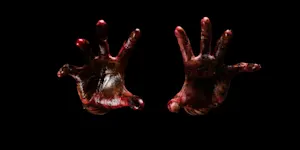What Makes This Word Tick
"Skulk" is one of those delightful words that conjures up vivid imagery just by saying it. It’s usually about moving stealthily or lurking about, and it carries a touch of mystery and mischief. It's as if the word itself is trying to sneak up on you when you say it!
If Skulk Were a Person…
If skulk were a person, they'd probably be that neighbor who's curious about everyone but never wants to be seen. Wearing a trench coat and sunglasses, they prefer to observe from the shadows, always knowing more than they let on.
How This Word Has Changed Over Time
Interestingly, "skulk" hasn't changed all that much over the centuries. It hails from older Scandinavian roots, initially depicting the same kind of secretive or sinister movement. Its durability in meaning might just suggest it's a core human activity — we've always needed a word for sneaking around!
Old Sayings and Proverbs That Use Skulk
While there aren't proverbial sayings that use "skulk" explicitly, the sentiment of sneaking or lurking does echo through sayings like "Keep your friends close and your enemies closer." Perhaps, skulking is more about the observation than action.
Surprising Facts About Skulk
Here's a charming tidbit: a group of foxes is called a "skulk." Now isn't that fitting? These wily creatures are known for their slyness and secretive movements, much like the word "skulk" itself.
Out and About With This Word
You'll likely encounter "skulk" in a good mystery novel or a dramatic whodunit TV show, where suspicious characters lurk in the shadows. It’s perfect for setting a scene that’s tinged with suspense and caution.
Pop Culture Moments Where Skulk Was Used
The word "skulk" often finds its way into detective and crime dramas. It's the kind of word that's perfect for a script when the camera pans to reveal someone hiding around a corner, listening intently.
The Word in Literature
"Skulk" appears in literature that often involves espionage, mystery, or adventure. Think of classic authors like Arthur Conan Doyle or Agatha Christie, where the atmosphere of intrigue calls for such a deliciously sneaky word.
Moments in History with Skulk
During the American Revolution, many patriots might have been described as skulking around, gathering intelligence or avoiding British patrols. It’s a word that captures the furtive spirit of those covert operations perfectly.
This Word Around the World
While "skulk" translates directly into various languages with a similar connotation, the cultural gesture of "sneaking around" is universal. In French, the verb "se faufiler" can carry a similar stealthy vibe.
Where Does It Come From?
"Skulk" comes from a Middle English derivative, likely associated with Scandinavian roots such as the Old Norse word "skulker," meaning to lurk or lie in wait. It’s been sneaking through languages for centuries.
How People Misuse This Word
Sometimes "skulk" is used when simply "hide" or "lurk" would do the job. Unlike "hide," skulking implies a deliberate act of moving stealthily, not just staying out of sight.
Words It’s Often Confused With
Lurk: While both involve secretive behavior, "lurk" doesn't necessarily imply movement.
Sneak: More about moving quietly to avoid detection, not necessarily with the intent implied by "skulk."
Hide: To simply stay concealed, lacking the movement or intent aspect of "skulk."
Additional Synonyms and Antonyms
Synonyms for "skulk" include lurk, prowl, and sneak. Antonyms might be parade, march, or appear.
Want to Try It Out in a Sentence?
Seeing the hallway was clear, the cat decided to skulk past the owner’s bedroom, hoping to avoid being caught out of bed at night.
















